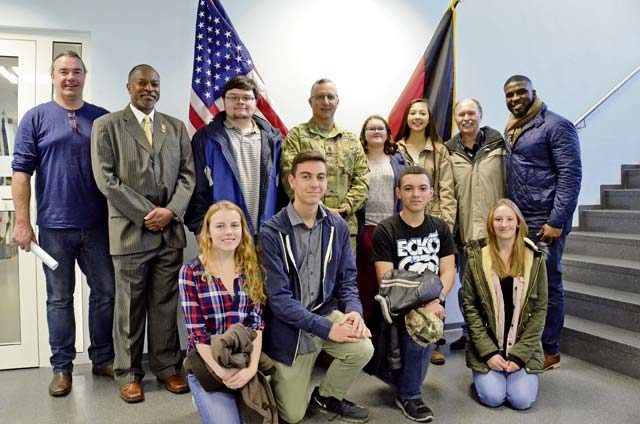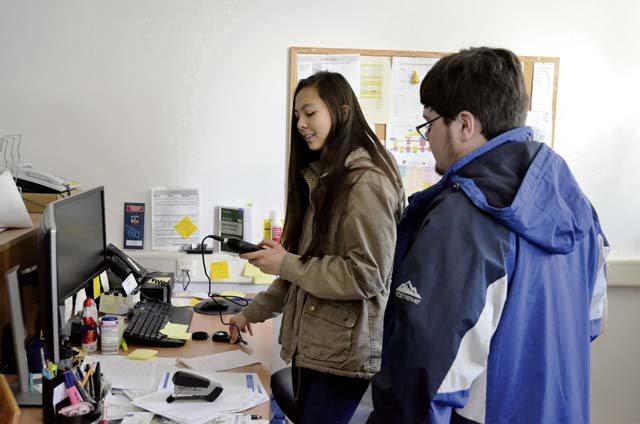
At the beginning of October, U.S. Army Garrison Rheinland-Pfalz Commander Col. Keith Igyarto challenged the garrison headquarters building and Department of Public Works to compete in a head-to-head Green Boot competition to see who could implement the best daily practices to conserve energy.
On Dec. 7, eight weeks from the start of the competition, seven student experts from Ramstein High School Environmental Club came to examine the two sections and provide feedback.
The RHS Environmental Club achieved Green Boot certification in 2016 after reducing energy consumption at RHS by 5 percent over the course of one school year, saving thousands of dollars in the process. With energy reduction and awareness as its primary focus areas, the club has already continued its energy reduction efforts this school year by initiating a plastic water bottle reduction campaign, encouraging students and teachers to recycle their plastic water bottles and switch to reusable ones.
The students brought their experience and expertise to the garrison as they inspected the two buildings competing in the challenge, accompanied by DPW Senior Facility Engineer Gregory Williams and engineers Konstantin Gross and Victor Aruwah.
During the inspection, students made suggestions about how staff could better conserve energy. Some of these suggestions included unplugging appliances such as toasters and microwaves when not in use, turning off or reducing the lights in a room when natural light is coming in through the windows and turning off monitors at vacant desks.
President of the RHS Environmental Club, Maddie Lubinski, said she was excited about the opportunity to observe energy-saving measures at the garrison. The 12th-grade student and aspiring environmental science major said she joined the club because of her desire to impact how her school saves energy.
She responded honestly when Command Sgt. Maj. Brian Hauke asked how his section is doing. “You’re doing well, but there are things you could do better,” Lubinski said before offering some suggestions.
Victoria White, vice president of the club, joined because of her dedication to conserving natural resources.
“It’s important to spread awareness because we need to conserve and save our natural resources,” the 11th-grader said. “I’m really glad we’ve had the opportunity to come here and see what other people are doing to conserve energy so we can help incorporate some of our ideas or use some of theirs.”
White used a device to measure the amount of light in each room she visited. When levels were higher than the recommended amount, White recommended to staff that some lights be turned off to reduce energy consumption.
The students’ observations were documented and will be used to help determine which building performed better during the challenge. However, real numbers will prove those efforts as well. Aruwah showed the students he installed meters in each building and measured consumption levels prior to the Green Boot competition, without staff knowing, so he could get an accurate baseline measurement. In comparison, consumption levels during the Green Boot competition decreased in both the garrison building and the DPW building — drastically in the latter, Aruwah said. Both sections are on their way to Green Boot certification.
Williams thanked the students for their time and encouraged them to stick with the engineer pathway, one he has been on since receiving his bachelor’s in civil engineering in 1985.
“It’s going to be tough, but I’m telling you it will be worth it,” Williams said.



